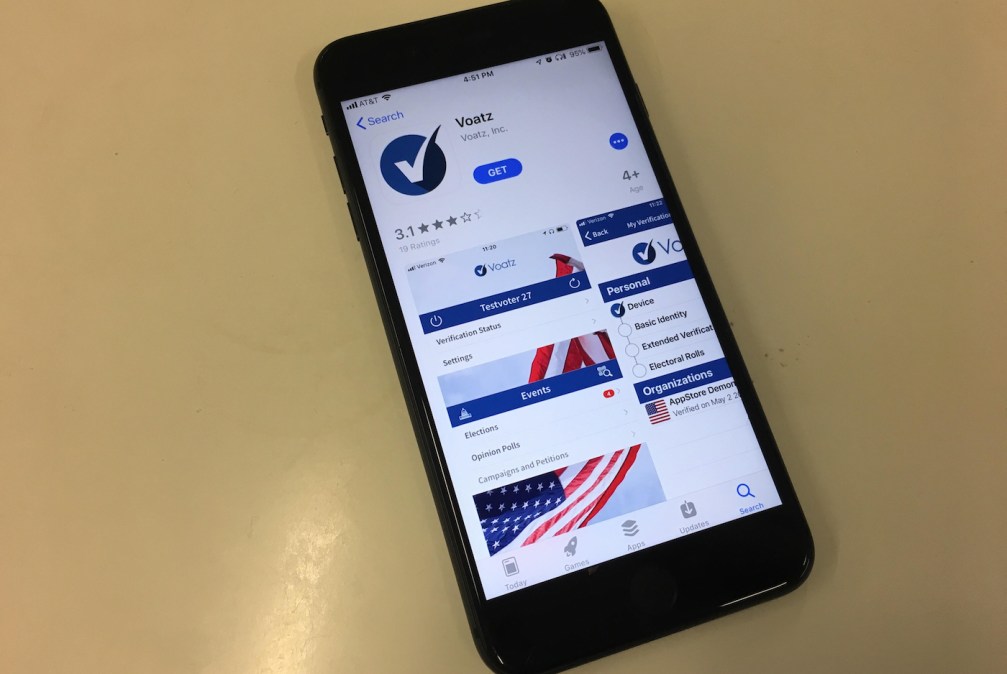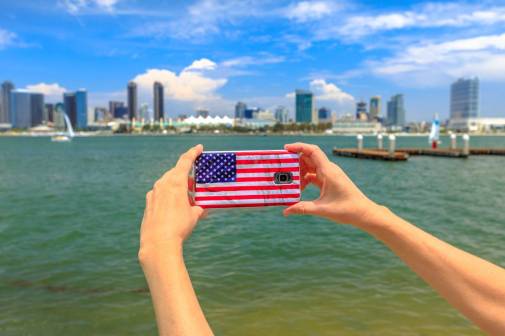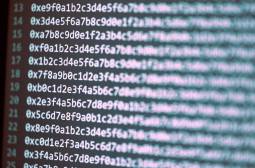Blockchain voting could grow beyond West Virginia

The company behind the blockchain-encrypted app that enabled some West Virginians to vote from overseas in last year’s elections is looking to expand to other states, saying it has attracted interest from election officials across the country.
“Hopefully in the next few months there should be some announcements,” Nimit Sawhney, the founder and chief executive of Voatz, told StateScoop in a phone interview Friday.
Sawhney declined to say which states have contacted his company, but he suggested more states could join West Virginia in using his mobile app to help their furthest-flung voters cast their ballots. The next state to dabble in blockchain voting could be right next door in Virginia, where two bills allowing ballots from deployed military voters to be cast electronically were recently introduced.
A bill currently awaiting a hearing in the House of Delegates would require Virginia’s election commissioner to launch a pilot program for electronic vote transmission from service members posted abroad and to develop standards for such a project. “To the fullest extent practicable, these standards and procedures shall incorporate the use of blockchain technology,” the bill reads. A companion bill was also introduced in the state Senate.
One hundred forty-four West Virginians living outside the United States voted last year using the Voatz app as part of a pilot project by Secretary of State Mac Warner’s office to test the use of blockchain encryption in safeguarding votes transmitted electronically.
Warner devised the project as a way to boost participation by his state’s registered voters who reside abroad, particularly active-duty military members deployed abroad. While the Defense Department’s Federal Voting Assistance Program helps deployed service members and U.S. expats to send ballots back home, participation rates for those voters tend to be very low, with just 7 percent voting in the 2016 presidential election.
West Virginia’s usage of the Voatz app was very limited, with only 24 of the state’s 55 counties cooperating with Warner’s office. But of the 183 voters who were identified as eligible to participate after selecting “email or online” as their preferred ballot-transmission method on their FVAP forms, 160 downloaded the Voatz app. The 144 who completed the process sent votes back home from 31 countries, including Albania, Botswana, Cambodia, Finland, Kuwait and Uganda.
“That’s pretty impressive that people would probably not have had a chance to vote in an election or if they’d tried to rely on traditional means,” Warner told StateScoop last weekend while attending a meeting of the National Association of Secretaries of State. He added that he’s looking for even broader use in 2020. “I suspect we’ll have more counties participating. And we still haven’t spent a dollar on advertising to get the message out. We might work with some of our partners on that.”
‘The firewall is there’
However, the use of blockchain technology, which distributes data across servers to encrypt it, has drawn criticism from election observers wary about conducting the democratic process over the internet. But both Warner and Voatz have defended the app as secure. According to a white paper published by the company last month, the app puts its users through a multi-factor authentication process that includes facial identification before showing them their ballots. Once votes are sent back to the relevant county office, local clerks unlock the votes from a “digital ballot box” and print them out to be counted alongside traditional paper ballots.
The votes West Virginia collected through Voatz were also subjected to four post-election audits, which Warner said upheld the app’s security.
“They did not find glitches. The technology is doing what it’s supposed to,” he said. “The firewall is there.”
But the technology still has its doubters, including groups like the Electronic Frontier Foundation and Verified Voting, which both advise that hand-marked paper ballots are the safest way to collect votes, and sent a letter to Virginia leaders recommending they reject adopting the technology for online voting.
“Under current technology, no practically proven method exists to securely, verifiably or privately return voted materials over the internet,” the letter reads. “Cybersecurity experts agree that no current technology, including blockchain voting, can guarantee the secure, verifiable, and private return of voted ballots over the internet. Both because there could be vote rigging malware on the voter’s computer and because electronically returned ballots could be intercepted and changed or discarded en route, local elections officials would be unable to verify that the voter’s ballot accurately reflects the voter’s intent.”
Voatz disputes that. In its white paper chronicling West Virginia’s pilot, the company says its app sent users digital receipts of their votes, while Warner’s office received corresponding anonymized receipts.
“Obviously security is an ongoing battle,” Sawnhey said. “We’re always on guard for that.”
Meanwhile, Warner’s become an evangelist for blockchain-encrypted voting among his fellow secretaries of state. “Several people have talked to us saying they’re very interested in watching its success,” he said. “I suspect I’ll hear from more of them.”






